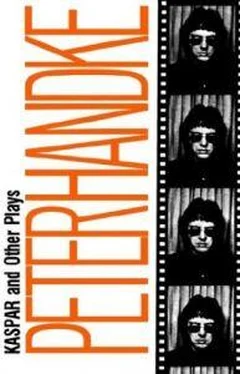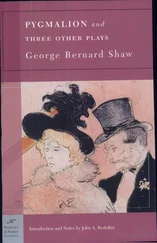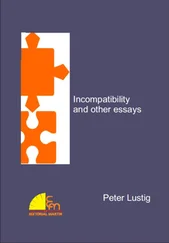Peter Handke - Kaspar and Other Plays
Здесь есть возможность читать онлайн «Peter Handke - Kaspar and Other Plays» весь текст электронной книги совершенно бесплатно (целиком полную версию без сокращений). В некоторых случаях можно слушать аудио, скачать через торрент в формате fb2 и присутствует краткое содержание. Год выпуска: 1970, Издательство: Farrar Straus Giroux, Жанр: Драматургия, на английском языке. Описание произведения, (предисловие) а так же отзывы посетителей доступны на портале библиотеки ЛибКат.
- Название:Kaspar and Other Plays
- Автор:
- Издательство:Farrar Straus Giroux
- Жанр:
- Год:1970
- ISBN:нет данных
- Рейтинг книги:4 / 5. Голосов: 2
-
Избранное:Добавить в избранное
- Отзывы:
-
Ваша оценка:
- 80
- 1
- 2
- 3
- 4
- 5
Kaspar and Other Plays: краткое содержание, описание и аннотация
Предлагаем к чтению аннотацию, описание, краткое содержание или предисловие (зависит от того, что написал сам автор книги «Kaspar and Other Plays»). Если вы не нашли необходимую информацию о книге — напишите в комментариях, мы постараемся отыскать её.
Waiting for Godot
In
and
, one-character "speak-ins," Handke further explores the relationship between public performance and personal identity, forcing us to reconsider our sense of who we are and what we know.
Kaspar and Other Plays — читать онлайн бесплатно полную книгу (весь текст) целиком
Ниже представлен текст книги, разбитый по страницам. Система сохранения места последней прочитанной страницы, позволяет с удобством читать онлайн бесплатно книгу «Kaspar and Other Plays», без необходимости каждый раз заново искать на чём Вы остановились. Поставьте закладку, и сможете в любой момент перейти на страницу, на которой закончили чтение.
Интервал:
Закладка:
I can make myself understood. I think I must have slept a long time because I am awake now. I go to the table and use the table, but look at that — the table continues to exist after it has been used. I can appear because I know where my place is. I cannot fall asleep with dry hands, but when I spit into my hands they become even drier. By saying: the chair is harmless, it is all over with the chair’s harmlessness. I feel good when the door, having stood open for long, is finally closed. I know where everything belongs. I have a good eye for the right proportion. I don’t put anything into my mouth. I can laugh to three. I am usable. I can hear wood rotting over long distances. I no longer understand anything literally. I cannot wait until I wake up, whereas earlier I could not wait to fall asleep. I have been made to speak. I have been converted to reality. — Do you hear it? ( Silence .) Can you hear? ( Silence .) Psst. ( Silence .)
The stage becomes dark.
Silence.
LXV
As the stage becomes bright once more, the events on stage are again divided into three parts: together with Kaspar’s speech as follows, the prompters come on again. Whispering, they repeat something like this: If only. Own future. Now every second one as opposed to every fourth one at one time. A possible object. If only. Make life easier. If only. Development. If only. In reality. If only. In constantly growing numbers. If only. Serves the. If only. Bears dangers. If only. It is necessary for that. If only. Finally, they repeat over and over again, until the end, speaking softly: If only. If only. If only. Meanwhile, the Kaspars come forward ( filing, etc. ) and proceed to manhandle the speaking Kaspar with their files, etc. They make particular fun of one object, say a chair, laughing at it, imitating it, costuming it, dragging it off and imitating the sound it makes as it is being dragged across the floor, thus making it utterly ridiculous and making it and all other objects COMPLETELY IMPOSSIBLE. Kaspar 1 has gone on speaking:
I can hear the logs comfortably crackling in the fire, with which I want to say that I do not hear the bones crackling comfortably. The chair stands here, the table there, with which I mean to say that I am telling a story. I would not like to be older, but I would like for much time to have passed, with which I mean to say that a sentence is a monster, with which I mean to say that speaking can help temporarily, with which I mean to say that every object becomes ticklish when I am startled. I say: I can imagine to be everywhere now, except that I cannot imagine really being there, with which I mean to say that the doorknobs are empty. I can say: the air snaps shut, or: the room creaks, or: the curtain jingles, with which I mean to say that I don’t know where I should put or leave my hand, while I when I say that I don’t know where to put my hand mean to say that all doors tempt me only under the pretense that they can be opened, which sentence I would like to use in the sense of: my hair has gotten into the table as into a machine and I am scalped: literally: with each new sentence I become nauseous: figuratively: I have been turned topsy-turvy: I am in someone’s hand: I look to the other side: there prevails an unbloody calm: I cannot rid myself of myself any more: I toss the hat onto the meathook: every stool helps while dying: the furnishings are waterproof: the furniture is as it ought to be: nothing is open: the pain and its end come within sight: time must stop: thoughts become very small: I still experienced myself: I never saw myself: I put up no undue resistance: the shoes fit like gloves: I don’t get away with just a fright: the skin peels off: the foot sleeps itself dead: candles and bloodsuckers: ice and mosquitoes: horses and puss: hoarfrost and rats: eels and sicklebills:
Meantime, the other Kaspars are producing an infernal noise with their various tools which they have applied to the objects they have brought with them and to Kaspar 1. They are giggling, behave like crowds in crowd scenes in plays, ridicule Kaspar 1 by speaking in the same rhythm as he, etc. Kaspar 1 had also produced a file and makes similar noises by scraping with the file against the microphone while he is speaking his sentences. But now, all at once, an almost complete silence sets in. The Kaspars merely flap their arms about a little and gesticulate. They wriggle a little. They snuffle. Then Kaspar says:
Goats and monkeys With that, the curtain jolts a little toward the center, where the Kaspars are wriggling. The jolt produces a shrill sound. Goats and monkeys With an even shriller sound, the curtain jerks a little farther toward the middle. Goats and monkeys With an even shriller sound, the curtain jerks still farther toward the middle. Goats and monkeys With an even shriller sound, the curtain moves still more toward the center. Goats and monkeys With the shrillest possible sound, the curtain makes one final jerk toward the center, where the Kaspars are still wriggling a little. The curtain slams into them the moment Kaspar 1 says his last word: it topples all of them. They fall over, but fall behind the curtain, which has now come together. The piece is over.
NOTE ON OFFENDING THE AUDIENCE AND SELF-ACCUSATION
The speak-ins ( Sprechstücke ) are spectacles without pictures, inasmuch as they give no picture of the world. They point to the world not by way of pictures but by way of words; the words of the speak-ins don’t point at the world as something lying outside the words but to the world in the words themselves. The words that make up the speak-ins give no picture of the world but a concept of it. The speak-ins are theatrical inasmuch as they employ natural forms of expression found in reality. They employ only such expressions as are natural in real speech; that is, they employ the speech forms that are uttered orally in real life. The speak-ins employ natural examples of swearing, of self-indictment, of confession, of testimony, of interrogation, of justification, of evasion, of prophecy, of calls for help. Therefore they need a vis-à-vis, at least one person who listens; otherwise, they would not be natural but extorted by the author. It is to that extent that my speak-ins are pieces for the theater. Ironically, they imitate the gestures of all the given devices natural to the theater.
The speak-ins have no action, since every action on stage would only be the picture of another action. The speak-ins confine themselves, by obeying their natural form, to words. They give no pictures, not even pictures in word form, which would only be pictures the author extorted to represent an internal, unexpressed, wordless circumstance and not a natural expression.
Speak-ins are autonomous prologues to the old plays. They do not want to revolutionize, but to make aware.
Peter Handke
~ ~ ~
In translating the invective at the end of Offending the Audience, I translated the principle according to which they are arranged — that is, I sought to create new acoustic patterns in English — rather than translate each epithet literally, which would only have resulted in completely discordant patterns.
To the assortment of moral truisms of which the prompters have a choice when they address Kaspar, I have added a number of American platitudes; the imaginative reader will have no difficulty in supplying even more. Certain liberties have also been taken to make Kaspar’s rhymes sort of rhyme. In nearly every other respect, these are translations and not adaptations. Peter Handke himself has cut the last sentence in Self-Accusation and also Kaspar’s final sentence which appeared in the original version.
Читать дальшеИнтервал:
Закладка:
Похожие книги на «Kaspar and Other Plays»
Представляем Вашему вниманию похожие книги на «Kaspar and Other Plays» списком для выбора. Мы отобрали схожую по названию и смыслу литературу в надежде предоставить читателям больше вариантов отыскать новые, интересные, ещё непрочитанные произведения.
Обсуждение, отзывы о книге «Kaspar and Other Plays» и просто собственные мнения читателей. Оставьте ваши комментарии, напишите, что Вы думаете о произведении, его смысле или главных героях. Укажите что конкретно понравилось, а что нет, и почему Вы так считаете.












